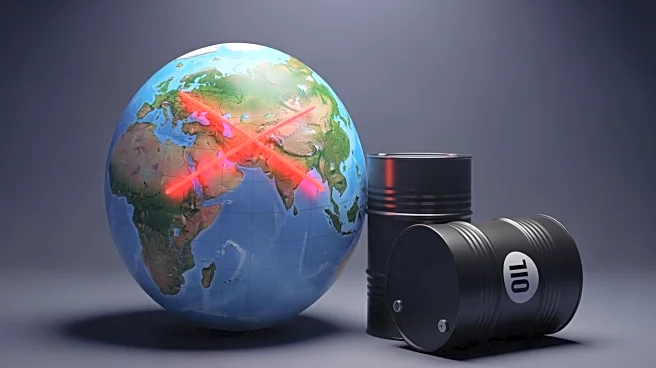What's Happening?
President Donald Trump has publicly criticized Russian President Vladimir Putin and imposed significant sanctions on Russia's two largest oil companies. This development comes shortly after a reportedly
'very productive' phone call between the two leaders, during which they had agreed to meet in Hungary. However, President Trump has since canceled the meeting, expressing dissatisfaction with the progress of talks with Moscow. The sanctions are part of a broader strategy to pressure Russia amid ongoing tensions, particularly concerning Russia's actions in Ukraine. The sudden shift in diplomatic tone marks a significant change in the U.S.-Russia relations under Trump's administration.
Why It's Important?
The imposition of sanctions on major Russian oil companies by the U.S. is a critical move that could have far-reaching implications for international relations and global energy markets. These sanctions are likely to strain U.S.-Russia relations further, potentially impacting diplomatic efforts in resolving conflicts such as the situation in Ukraine. Economically, the sanctions could disrupt global oil supply chains, affecting oil prices and energy markets worldwide. The decision also signals a more assertive U.S. foreign policy stance towards Russia, which could influence other geopolitical dynamics and alliances.
What's Next?
Following the cancellation of the meeting with President Putin, it remains to be seen how Russia will respond to the new sanctions. Moscow's reaction could range from diplomatic protests to countermeasures affecting U.S. interests. The international community will be closely monitoring the situation, as further escalation could lead to broader geopolitical tensions. Additionally, stakeholders in the energy sector will be assessing the impact of these sanctions on oil markets and potential shifts in energy trade patterns.









